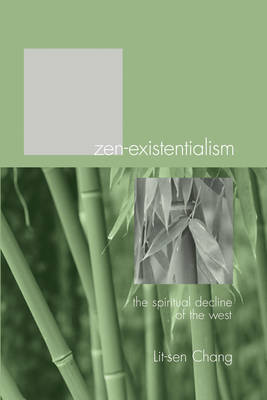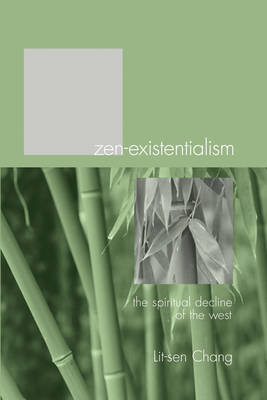
En raison d'une grêve chez bpost, votre commande pourrait être retardée. Vous avez besoin d’un livre rapidement ? Nos magasins vous accueillent à bras ouverts !
- Retrait gratuit dans votre magasin Club
- 7.000.000 titres dans notre catalogue
- Payer en toute sécurité
- Toujours un magasin près de chez vous
En raison de la grêve chez bpost, votre commande pourrait être retardée. Vous avez besoin d’un livre rapidement ? Nos magasins vous accueillent à bras ouverts !
- Retrait gratuit dans votre magasin Club
- 7.000.0000 titres dans notre catalogue
- Payer en toute sécurité
- Toujours un magasin près de chez vous
47,45 €
+ 94 points
Description
Modern man has found that material achievements are failing him, but in his escape from despair, he has become an easy prey for the deceptive cult of ""Zen-Existentialism."" There has emerged a mode of radical ""New Humanism"" with its emphasis on ""human autonomy."" In place of the God-man appears the ""man-god."" There is a search for the ""world within,"" the ""limitless inner space,"" the ""expansion of consciousness"", and the transcendental experience of ""Satori."" First published in 1969, this book prophetically anticipated the growth of New Age developments in the decades to follow. Lit-sen Chang directly spoke to the Hippie movement of his day, which was then seeking various means of transcendence through drugs and eastern mysticism. This book also reflects fifty years of bitter experiences of the author's spiritual pilgrimage and shows how he was miraculously delivered by the grace and power of God from his ""cul-de-sac."" Chang writes of the utter futility of the fantasy of the East, analyzes the root causes of the crises in the West, and points out the doom of auto-soterism after his careful diagnosis of the human problem in cultural, philosophical, religious, and theological terms. ""Chang makes his judgment by cultural and Scriptural criteria, tempered by a background in the Orient and a vast experience in the West . . . He speaks of his own experience of Zen and this gives his words the authoritative power of witness."" Dr. James Forrester, Former President, Gordon College and Divinity School ""The finest work from a Christian standpoint on the subject of Zen-Buddhism . . . Chang has performed a real service for evangelical Christianity by analyzing Zen from the inside."" Dr. Walter Martin, The Christian Research Institute Lit-sen Chang (1904-1996) was an ardent Chinese Buddhist on his way to India to promote a renaissance of Asian religions when he met Christ. He had been a talented legislator, and a brilliant young author on law and land policy. He now committed himself to serve Christ, and graduated summa cum laude at Gordon Divinity School in 1959, and then served as special lecturer on missions and world religions. He wrote twenty volumes on the field of Christian apologetics against Chinese culture and the contemporary West. Wheaton College honored him with the Doctor of Letters in 1984.
Spécifications
Parties prenantes
- Auteur(s) :
- Editeur:
Contenu
- Nombre de pages :
- 266
- Langue:
- Anglais
- Collection :
Caractéristiques
- EAN:
- 9781608999187
- Date de parution :
- 21-07-11
- Format:
- Livre broché
- Format numérique:
- Trade paperback (VS)
- Dimensions :
- 140 mm x 213 mm
- Poids :
- 340 g

Les avis
Nous publions uniquement les avis qui respectent les conditions requises. Consultez nos conditions pour les avis.






